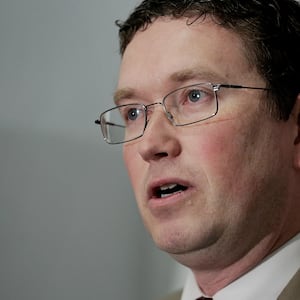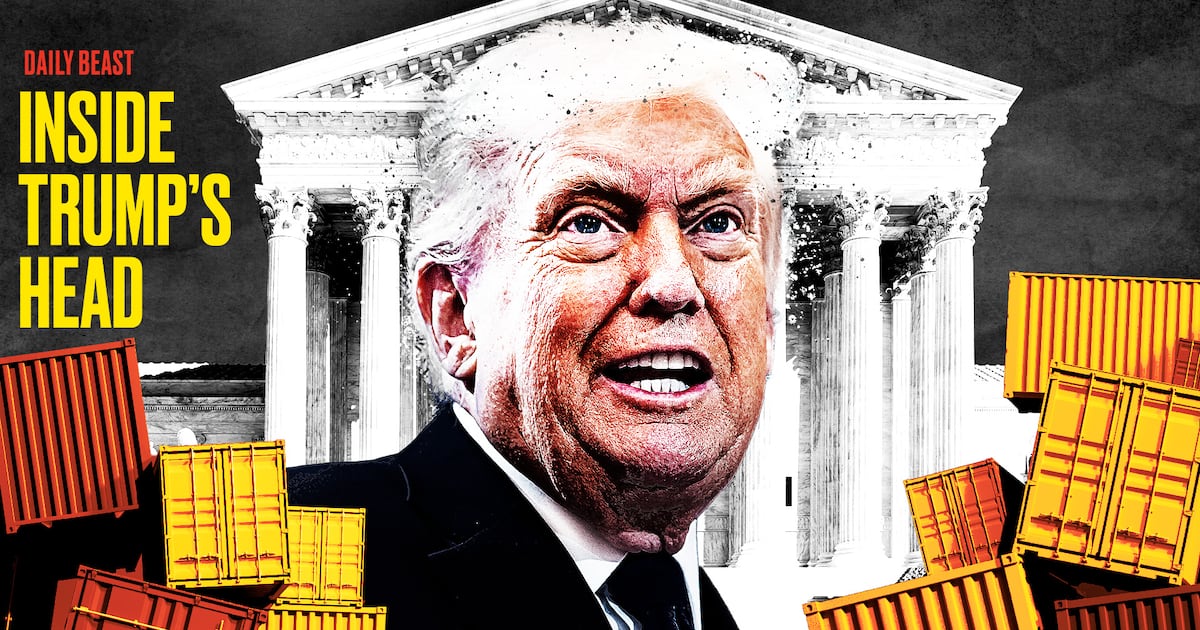In the wake of the September 11th terrorist attacks, Democrats and Republicans joined together to demand an in-depth review of how the tragedy happened. The probe that became known as the 9/11 Commission ultimately provided a deep accounting of what went wrong and how those mistakes could be prevented in the future.
Two decades later, that effort is inspiring calls for an exhaustive investigation into the federal government’s handling of the coronavirus outbreak and there is broad bipartisan support for a sweeping account of the federal response to COVID-19. Several members of Congress are already pushing bills to establish “9/11 Commission-style” panels to do just that.
“It’s as important, if not more important, than 9/11,” said Tim Roemer, one of the 9/11 Commission’s members and a former Democratic congressman from Indiana. “And it’s going to continue to happen.”
The agreement, however, largely begins and ends there—a problematic sign for a probe that must be indisputably bipartisan to succeed. In a year when Donald Trump is on the ballot, most Republicans are unlikely to embrace a project that has any potential at all to render a damning verdict on his handling of a major crisis right before voters head to the polls. Only a handful of Republicans have come out in favor of launching a 9/11 Commission-style effort; others say it’d be warranted, but only when the crisis has long been in the rearview mirror.
Among proponents of a review in the nearer term, meanwhile, there’s disagreement on a key point: how soon it should happen. Conduct it anytime near the 2020 election, some say, and it becomes cast as a political ploy. But put it safely after, say others, and the Trump administration is spared the accountability mechanism of the ballot box.
“The timing isn’t always something we prefer... We do have a series of events this year that are happening simultaneously,” Rep. Raja Krishnamoorthi (D-IL), a member of the House Oversight Committee, told The Daily Beast. “I don’t have a good answer, but I know that something like that has to happen, and we have to have oversight now with respect to implementation of a massive program with a lot of money.”
Currently, four proposals are circulating in the House of Representatives to establish COVID-19 review commissions, all of which would create relatively powerful panels with subpoena power and members picked by the president and congressional leaders from both parties. Most echo the 9/11 Commission; formed in November 2002—over a year after the attacks and days after the midterm elections in which the GOP consolidated control of Congress—it had five Democratic and five Republican members, with a chair selected by Bush.
Some of these bills have bipartisan backing. One proposal, authored by Reps. Stephanie Murphy (D-FL) and John Katko (R-NY), would establish a 11-member panel—whose chair is selected by the president—empowered with subpoena authority to conduct its investigation. It’s unlikely to begin work until spring 2021.
It’s similar to the proposal floated by Rep. Adam Schiff (D-CA), the chairman of the House Intelligence Committee, who said his bill would be explicitly modeled after the law that created the 9/11 Commission in 2002. In a release touting his “draft” bill, Schiff’s office also specified that the commission would begin work in February 2021, “hopefully after the pandemic has been overcome and after the presidential election.”
The only lawmaker pushing a probe that could potentially begin sooner is Rep. Bennie Thompson (D-MS), chairman of the House Homeland Security Committee. His proposal would appoint a 25-member panel to conduct an 18-month investigation that would open shortly after the law to establish it is passed.
For a broad group of House Democrats, these proposals have merit—as does the idea of steering far clear of the 2020 election. “We’re in the middle of it,” Rep. Jared Huffman (D-CA) told The Daily Beast. “It will invariably fall prey to politics or be dismissed as politics. It’s just going to be a heck of a lot more credible if it comes a little down the road.”
Huffman and other lawmakers point to the separate work that Congress is already doing to hold the administration accountable for its handling of the COVID-19 outbreak, as well as its stewardship of the some $3 trillion in relief funds that lawmakers have approved since the crisis began. The CARES Act, passed on March 27, establishes a bipartisan commission for that very purpose. Speaker Nancy Pelosi (D-CA), meanwhile, has announced a select committee on the coronavirus crisis to act as something like a clearinghouse for oversight efforts.
While many see wisdom in handing the baton to an independent board for a full review when the worst of the crisis is over, there are lawmakers who believe it’s needed more urgently.
“I think there’s an argument to be made for accelerating this review, so that we all understand who did what, how did it happen, and why,” said Rep. Gerry Connolly (D-VA), a senior member of the House Oversight panel. “If you put this off until next year, when there could be a new administration, everybody who is responsible is off the hook. They’re gone. I think accountability matters here.”
“If you lost someone near and dear to you,” continued Connolly, “my guess is you want some closure, some answers, sooner rather than later. It’s not just about blame. It’s about wanting to understand how this happened in the world’s most advanced country.”
And John Farmer Jr., a Republican who served as senior counsel for the 9/11 Commission, argued that the ongoing nature of the outbreak—which is expected to disrupt normal life until after a vaccine is developed—is another reason to accelerate at least some big-picture review.
“The biggest difference I see between this and 9/11, is I don’t think we can afford to wait until there’s a vaccine and the crisis ends before a close look is taken at what’s happened,” he said,
This disease, continued Farmer, “has overwhelmed political boundaries that define our response. That’s something that has to be looked at—you don’t want to step on the response, but you can’t afford to wait.”
Any quick investigation, however, is poised to meet a chilly reception among Republicans. Trump himself has cast oversight from Congress as similar to the “witch hunts” that have dogged his presidency.
"This is not the time for politics," Trump said at a Thursday press conference, when asked about the committee proposed by Pelosi. "Endless partisan investigations—here we go again—have already done extraordinary damage to our country in recent years… Conducting these partisan investigations in the middle of a pandemic is a really big waste of vital resources, time, attention, and we want to fight for American lives, not waste time and build up my poll numbers.”
Republicans say there’s likely to be openness in their ranks to a panel modeled after the 9/11 Commission, but only when most of the crisis is in the rearview mirror—and if figures like Schiff are nowhere near the effort.
“Right now is not the right time,” a senior House GOP aide told The Daily Beast. “It’d be like creating the 9/11 commission on 9/12. We’re still fighting the virus and trying to overcome this pandemic. When we’re in a healthier spot as a country, the time might be right for this. But, in the midst of a global health crisis and global economic crisis, that’s not right now.
To those who served on the 9/11 Commission, bipartisanship—and buy-in from the president—is a prerequisite for any successful effort that would echo what they did. Despite the absence of that ingredient right now, some former members drew on their own experience 15 years ago to find some hope.
“When we were appointed, the pundit class in Washington predicted that members of the commission would end up in a big food fight because partisan impulses would rule,” said Richard Ben-Veniste, the former chief of the Watergate Task Force who served as a Democratic member of the 9/11 Commission. “Instead, we were able to put aside such impulses as may have existed for the greater good of conducting a critical investigation, and then, based on facts deduced in that investigation, make recommendations that would benefit the country.”
Roemer, who is advising lawmakers on their efforts to draft an independent commission bill, said that such a probe for COVID-19 wouldn’t necessarily have to be framed as a quest to scrounge for people to blame.
“If 9/11 was basically a failure of imagination to connect the dots of an impending attack, the COVID-19 crisis is a failure of not anticipating in government the proactive, preparatory coordinating, health care and manufacturing capabilities that we need in the 21st Century,” he said. “It’s not the fault of one administration.”
But even under better conditions, all acknowledge that initiatives this sweeping and significant are extraordinarily hard. “Most of these commissions fail, in terms of the way they’re put together. They’re constructed to fail, be partisan,” said Roemer. “I am not guaranteeing this is the option that works. It might be the only option.”







